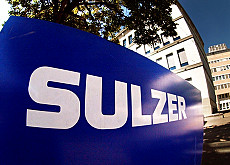Sulzer share coup results in fallout

The surprise capture of a 32 per cent stake in Swiss engineering firm Sulzer by a Russian-Austrian consortium has led to renewed calls for takeover rule changes.
The Swiss Federal Banking Commission is investigating the coup that also resulted in the resignation of a top Zurich Cantonal Bank (ZKB) executive and a bank internal policy review.
The sudden announcement more than a week ago that nearly a third of Sulzer’s shares were now in the hands of the consortium took the Winterthur-based company by surprise.
The secret stake building manoeuvre was conducted by Russian billionaire Viktor Vekselberg’s private equity firm Renova and the Victory group controlled by Austrians Ronny Pecik and Georg Stumpf via their joint owned enterprise Everest.
Sulzer chairman Ulf Berg has criticised the way that Swiss market rules allowed hostile bidders to circumvent reporting regulations by acquiring voting shares through financial instruments known as cash settlement options.
Professor Hans Geiger at Zurich University’s Swiss Banking Institute told swissinfo that measures to close loopholes, currently being drawn up for implementation in the summer, could not come fast enough for Swiss firms.
Loophole exploited
“There seems to be a mistake in the rules that means buying through [cash settlement] options is not included. The rules should be adapted because they are too vague,” Geiger said.
“From a capitalist perspective taking over a firm is a good thing because this results in disciplined management, it helps the shareholder and makes sure that capital is invested in the most efficient way.
“But the target company should have a chance to defend itself and the shareholders should be informed so they can properly decide whether to sell or not.”
Existing Swiss takeover rules force a buyer to report their stake once they have reached five per cent of the target’s shares. The accumulation of more than a third of voting shares results in an automatic takeover bid.
This meant that Sulzer shareholders woke up a week ago to find that a potential hostile bidder had suddenly announced a 32 per cent stake in their company.
The role of banks has also come under scrutiny, particularly ZKB and Deutsche Bank who appear to have been helping the Russian-Austrian consortium.
Bank executive resigns
ZKB’s head of investment and private banking, Hans Fischer, will leave the bank by the end of the month after his team reportedly bought up a stake in Sulzer without the knowledge of superiors.
“If it is possible to shoot a good client in the back in breach of internal instructions, then it is a sign that the internal benchmarks are insufficient,” a ZKB spokesman told Reuters news agency.
And the whole deal has come under the scrutiny of the Swiss Federal Banking Commission which is investigating how the consortium managed to secretly gather so many Sulzer shares.
A Commission spokeswoman confirmed to swissinfo that it was looking into various transactions involving Sulzer shares and options in relation to disclosure rules. But it would not disclose details of the transactions or the other parties involved.
Under Swiss rules all parties working together in a takeover bid must declare their hand. Their accumulated shares and options must then be reported together as one stake.
Sulzer, in the meantime, has been rebuffed in its own $2.2 billion (SFr2.7 billion) takeover bid for British firm Bodycote and for parts of pump makers Weir Group.
swissinfo, Matthew Allen with agencies
Under Swiss regulations, any party buying 5% or more of a company’s shares must report their stake. The same rule applies when 5% of options have been accumulated. Every 5% increment after this must also be declared.
This rule does not apply to cash-settlement-options contracts that allow the holder to exchange for either cash or shares if desired.
Parliament is currently looking into measures to close this loophole and hopes to tighten the rules by July of this year.
Sulzer is the latest in a line of Swiss companies to come under ambush by hostile bidders.
Two years ago Victory took over Unaxis (later renamed OC Oerlikon) after building up a secret stake (Renova also now holds a stake).
The Austrian private equity group then repeated the trick with machinery manufacturers Saurer. Victory has also been progressively buying a stake in telecommunications company Ascom.
Swiss construction group Implenia asked the authorities last month to look into the secret acquisition of over a fifth of its shares by British hedge fund Laxey Partners.
The hostile takeover bid by Swiss reinsurer Converium by its French counterpart Scor this year is also being investigated after shareholder Martin Ebner sold his 20% stake to Scor.
On April 21, Everest – a company jointly owned by Renova and Victory – announced that it held 18% of Sulzer’s shares and another 14% in options (a contract entitling the owner to buy shares at a later date).
Last week it emerged that ZKB, Sulzer’s house bank, had been helping the consortium accumulate its stake without the knowledge of the bank’s board.
It emerged that the bank itself had accumulated 8.49% of Sulzer’s voting rights, although it is not known whether this was linked to the consortium.
On Friday, ZKB announced that head of investment and private banking, Hans Fischer, had resigned and would leave his post by the end of May. The bank is reviewing its internal procedures, but denies any illegal activity.

In compliance with the JTI standards
More: SWI swissinfo.ch certified by the Journalism Trust Initiative



You can find an overview of ongoing debates with our journalists here. Please join us!
If you want to start a conversation about a topic raised in this article or want to report factual errors, email us at english@swissinfo.ch.